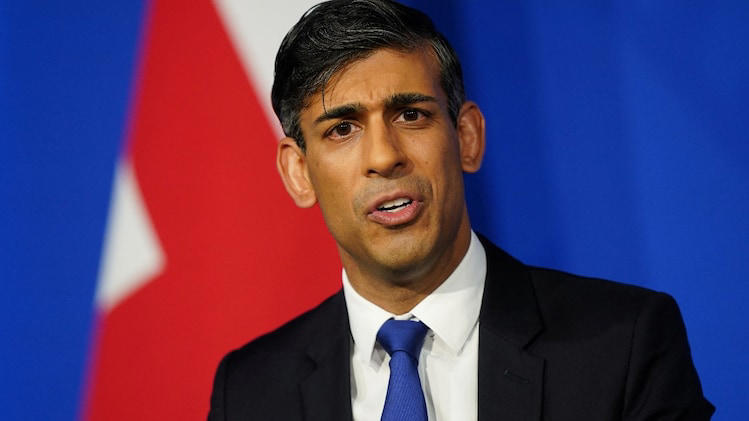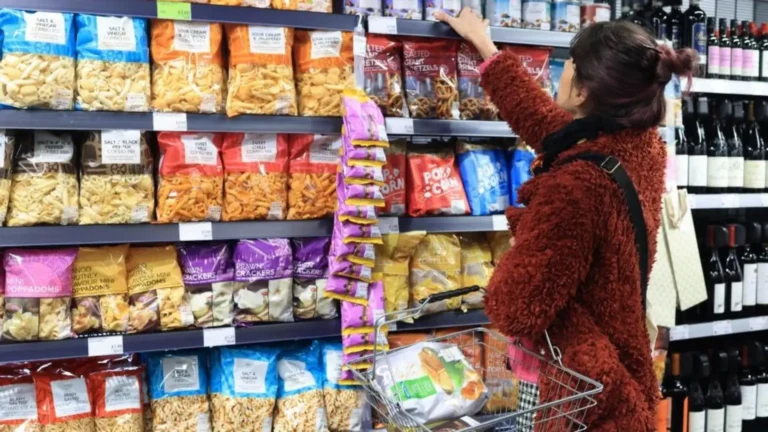London, May 22, 2024 – The UK Inflation Falls rate has dropped to 2.3% in the year to April, marking its lowest level in nearly three years, according to the latest figures released by the Office for National Statistics (ONS). This significant decrease follows a March inflation rate of 3.2%, showcasing a notable improvement in the country’s economic stability.
The sharp decline in the Consumer Price Index (CPI) inflation is a welcome relief for households and businesses across the UK, who have been grappling with high living costs over the past few years. The fall in inflation aligns with the Bank of England’s target to bring inflation closer to the 2% mark, aiming to stabilize the economy and ease financial pressures on consumers.
UK Inflation Falls to 2.3%, How?
Economic Context and Contributing Factors

Several factors have contributed to the reduction in UK Inflation Falls. A significant drop in food and energy prices has played a crucial role. Energy prices, in particular, have seen a downward trend due to a mild winter, reducing the demand for heating and easing the strain on household budgets. Additionally, global supply chains have shown signs of recovery, alleviating some of the supply-side constraints that had previously driven up costs.
The ONS report highlights that the decrease in UK inflation was also driven by a reduction in the prices of transportation and clothing. The automotive sector, benefiting from improved supply chains and reduced material costs, saw prices for new and used cars stabilize. Similarly, the fashion industry experienced fewer disruptions, leading to more predictable pricing for consumers.
Implications for Households and Businesses
For households, the fall in uk inflation is expected to translate into lower costs for everyday goods and services, providing some much-needed financial respite. The reduction in food and energy bills is particularly beneficial for low-income households, who spend a higher proportion of their income on these essentials. This decrease will likely boost consumer confidence and spending, further supporting economic recovery.
Businesses, especially those in retail and hospitality, may experience increased consumer spending as disposable incomes rise. This positive outlook could spur investment and expansion plans that had been on hold due to economic uncertainties. However, businesses must remain cautious and continue to monitor the market for any signs of inflationary pressures returning.
Expert Analysis and Forecasts
Economic analysts are cautiously optimistic about the continued decline in inflation. According to industry experts, maintaining inflation at this level or lower will require sustained efforts in managing supply chain efficiencies and monitoring global commodity prices. They also emphasize the importance of prudent fiscal and monetary policies to avoid potential inflationary shocks in the future.
David Hughes, Chief Economist at UK Financial Insights, commented, “This drop in inflation is a promising sign for the UK’s economic recovery. However, it’s essential for policymakers to remain vigilant and proactive in their approach to ensure that inflationary pressures do not resurface. Continued investment in infrastructure and innovation will be key to sustaining this positive trend.”
Looking Ahead
The latest inflation figures provide a glimpse of hope for a more stable economic environment in the UK. As the country navigates post-pandemic recovery, the focus will be on maintaining this momentum and ensuring that the benefits of reduced inflation reach all segments of society. Policymakers and businesses alike must collaborate to build a resilient economy capable of withstanding future challenges.
Stay with us as we continue to dig into the figures and provide the latest analysis on this developing story.


